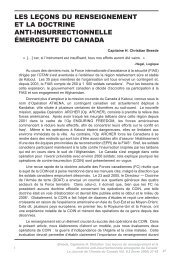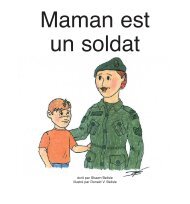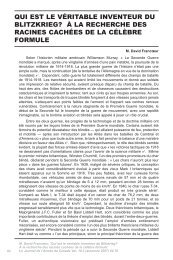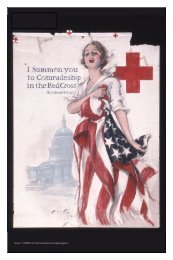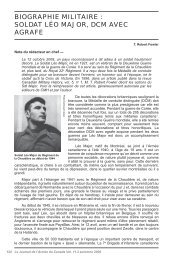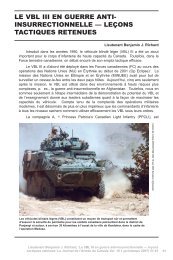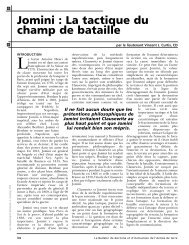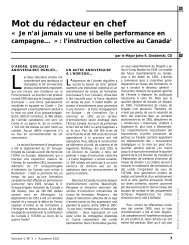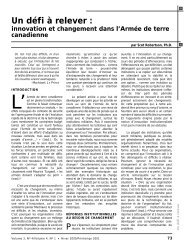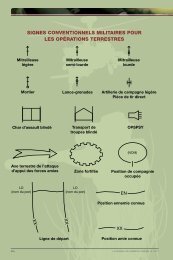The Canadian Army Journal
The Canadian Army Journal
The Canadian Army Journal
You also want an ePaper? Increase the reach of your titles
YUMPU automatically turns print PDFs into web optimized ePapers that Google loves.
<strong>The</strong> Existential Challenge<br />
<strong>The</strong> authors close their book by evaluating Canada’s remaining options in<br />
Afghanistan. Given the appointment in October 2007 of the Manley Committee to look<br />
at Canada’s options for Afghanistan, this analysis is a timely contribution. After<br />
identifying and airbrushing several policy options, they pose a more fundamental,<br />
existential challenge to the notion of expeditionary nation building stabilization forces:<br />
“To put the question bluntly, has the time passed when a Western army can intervene<br />
with force outside its own society?” 6 In other words, despite our best intentions, is what<br />
we want to do even within the realm of political possibility? This question strikes at the<br />
heart of our fundamental political question: How can our army fight and win complex<br />
wars in tribal societies that don’t live by our rules, rules that are so ingrained we don’t<br />
even notice them any more? <strong>The</strong> authors do an excellent job of tracing the historical<br />
path that determined our engagement in Afghanistan, identifying important institutional<br />
flaws in the <strong>Canadian</strong> foreign and defence establishments, and yet they find themselves<br />
unable to answer the most important question they raise: Is it even possible to do what<br />
we seem to want to do?<br />
Endnotes<br />
1. Janice Gross Stein and Eugene Lang, <strong>The</strong> Unexpected War: Canada in Kandahar, (Toronto: Penguin Group, 2007).<br />
2. 195.<br />
3. 264.<br />
4. Ibid.<br />
5. 263.<br />
6. 301.<br />
THE MESS THEY MADE: THE MIDDLE EAST AFTER IRAQ<br />
DYER, Gwynne, McClelland & Stewart; 1 st Edition, 2007. 280 pages. $21.99 CAN<br />
Reviewed by Gregory Liedtke<br />
<strong>The</strong>re is little doubt that, while the military invasion<br />
was a resounding success, the American occupation of<br />
Iraq has been marred by an almost incomprehensible<br />
level of corruption, mismanagement, and overconfidence.<br />
<strong>The</strong> brutal civil war between the various religious and<br />
ethnic groups has dire implications for the integrity of Iraq<br />
and the stability of the Middle East as a whole. Despite<br />
the recent surge of troop strength, American political and<br />
military leaders appear utterly incapable of bringing<br />
peace and prosperity to Iraq. As author Gywnne Dyer<br />
argues in <strong>The</strong> Mess <strong>The</strong>y Made, all this indicates that the<br />
Americans have clearly lost the war in Iraq and the real<br />
question is what will happen next?<br />
Overall, the picture presented is one of optimism,<br />
even if only in the long run. Dyer contends that the best<br />
solution is for the Americans to withdraw completely,<br />
leaving events in both Iraq and the greater Middle East to<br />
unfold as they will. <strong>The</strong> oil, he assures his readers, will continue to flow regardless of<br />
what might transpire. Aside from this commodity, the “region is of little economic or<br />
<strong>Canadian</strong> <strong>Army</strong> <strong>Journal</strong> Vol. 11.1 Spring 2008 137


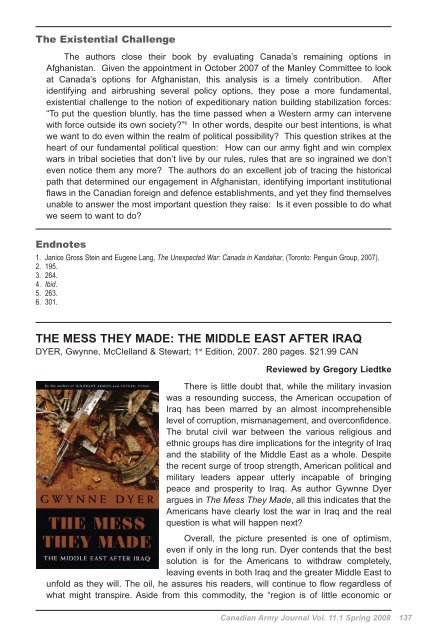
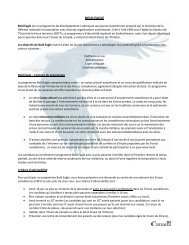
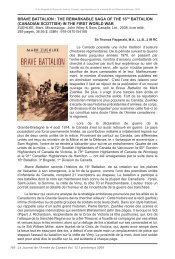
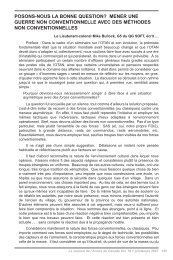
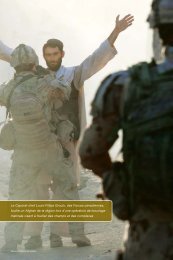
![La modularite dans l'Armee de terre canadienne [pdf 1.6 MB]](https://img.yumpu.com/17197737/1/188x260/la-modularite-dans-larmee-de-terre-canadienne-pdf-16-mb.jpg?quality=85)
